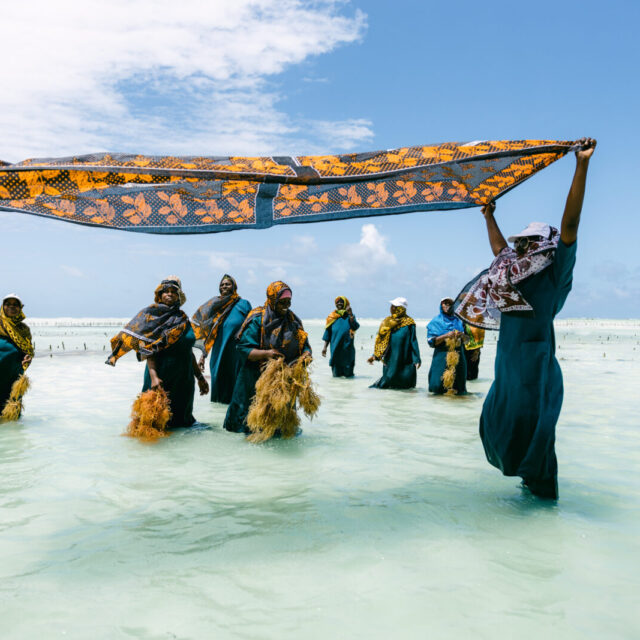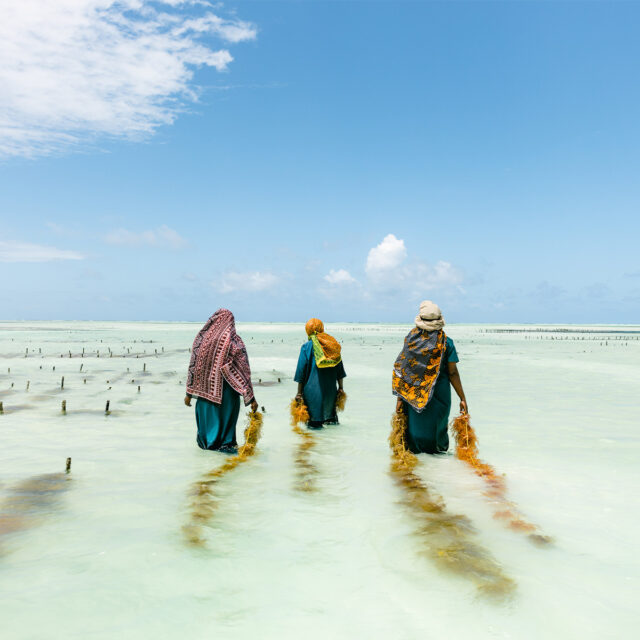Our guest blogger today is Vincent Rapeta, a young farmer from South Africa. He is speaking at the African Union Youth Forum in Addis Ababa this week as part of their 50th anniversary celebrations.

I’m Vincent and I come from Limpopo Province in South Africa. I’m 28 and a farmer. I grow maize, butternut squash, watermelon, tomato, beetroot and cabbages. I am a farmer by accident but I’m loving it.
I was raised by a single parent and we were very poor when I was growing up. I think that my mother earned R5000 a year. In today’s US dollars, that is just over $500.
I had dreams of becoming an auditor and fighting corruption but we didn’t have money to send me to university. But I did have an opportunity. I was helping my mother while I was in school on our small plot of two hectares. And after I was done with school, I started helping her full time- that’s how I became a farmer.
Our produce started being noticed for its quality and in 2006, the local Department of Agriculture selected me to attend an agriculture training programme where I learned about soil quality, when to plant certain crops and also special knowledge about growing tomatoes, which are higher value crops. I eventually got my own plot and started expanding the amount of produce we could grow, and began to employ some local people to help me manage my plots and harvests.
In 2010, I went to school again to learn about the business side of farming and best management practices. I learned about finances, communications, labour and best standards for my produce. In 2011, I won the Best Farmer award in Molemole Municipality. I was so excited.
Last year I decided to expand my operation and was able to obtain 20 hectares from the traditional council in my area and another 20 from the municipality. I am now trying to get those plots of land suitable for farming as they are still covered in bush. I’ve had to spend my savings to clear the land and drill boreholes for irrigation, but hope to be up and running by the end of this year.

Farming is hard work. It is very challenging, but so rewarding. I think there are three main challenges for young farmers like me.
First, we need access to land and financial services. I have been very lucky – an elderly neighbour allowed me to farm her plot and I also had my mother’s plot to start from. Not all of my fellow young South Africans without work have been so fortunate. South Africa is redistributing its land but it often goes to people who don’t make a living from it. A doctor will get a few hectares where I live, but then wake up and go to his job.
Banks require security and collateral for loans. Hail can ruin one season’s harvest. I’ve saved and have been able to use this to expand, but we need insurance and loans to help us move forward. When we take the risk, we need government to meet us half way in managing these costs.
Second, we need to challenge the perception that informal sector farmers like myself provide poor quality produce. I was once told by a buyer for a big market that he wouldn’t buy tomatoes from black farmers. And this was a black man telling me this. He would buy spinach and butternut but not tomatoes. So we must try to promote the real quality of food that informal farmers produce.
And finally, we need access to fair markets. As we plan our crop we need to be sure that it will not go to waste. In Limpopo I am lucky that the food bank buys my tomatoes and my income is assured, other youth farmers in the rest of the country don’t have the same opportunities. We need policies that support the development of crop markets so that farmers can increase their harvest, earn more income and improve their families’ lives.
All I can say is that here is so much opportunity in farming. I think young people all over Africa should look to farming to improve their lives and improve our continent. We’re always crying of not having jobs. Well, we can find land. We’re not disabled. Why can’t we just make our own job? Our governments just need to make it easier by building roads that lead to markets and by providing marketing information and training to farmers.
I dream of owning 1000 hectares in ten years where I can have a herd of cattle and provide so many jobs to contribute to poverty alleviation. I know this is possible and with the right policies from government, all of us here will be farming.
Find out more about ONE’s work on agriculture, and follow the latest developments from the Africa Union 50th Anniversary celebrations in Addis Ababa on Twitter via @ONEinAfrica


